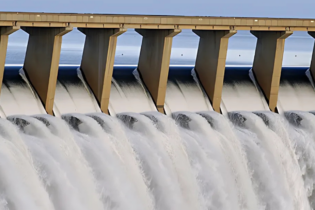Dhesigen Naidoo, CEO of the WRC added that if South Africa can develop the necessary self-sufficiency through its own industrial strength, the country will have the ability to become a world player in the developing world when it comes to water security and alternative solutions.
Naidoo also highlighted that the country’s Sustainable Development Goals (SDGs) are very important in the next 15 years and said the WRC has a significant role to play with regards to water innovation, technology transfer and capacity building. He added that the country cannot afford to get locked in by “passing the ball to private sector”. Naidoo noted that it was important to understand how SMMEs can enter and contribute towards a South African water industry that challenges traditional business models, as he believes this will allow the country to unlock a number of multiplier effects for socio-economic development. Garth Strachan, deputy director general from the department of trade and industry, said “Critical to economic growth is policy alignment and coherence. If we can get this right as government, and at the same time the private sector can better organise itself in relation to water and the emerging industry, we will make progress.” There were several key outcomes of the panel discussion and dialogue. Some of these included developing a more organised water sector, considering relevant water pricing research and policy change that will enable private sector’s investment in water infrastructure, creating entry and engagement points for SMMEs, and addressing not only the quantitative aspects of enterprise development inclusion, but equally qualitative indicators that address capacity development beyond nominal service provision.
Looking at the effects South Africa’s challenging water sector has on Small, Medium and Micro Enterprises (SMMEs) was the focus of a recent dialogue facilitated by the Water Research Commission (WRC) and The Gordon Institute of Business Science Enterprise Development Academy (GIBS EDA).
The dialogue took place in mid-May and was in response to the recent launch of the ninth iteration of the Industrial Policy Action Plan (IPAP) 2017/18 – 2019/20, which featured a chapter on the emerging water industry.
The panel discussion highlighted that several opportunities for SMMEs exist within the sector, but that these need to be made more explicit through collaborative efforts where partners help facilitate these opportunities.
Founder and director of GIBS EDA, Yogavelli Nambiar, said South Africa currently finds itself at a watershed moment. She added that stakeholders need to be remain committed to uncovering what the water sector and its challenges mean for SMMEs that are looking to innovate, create jobs, and contribute to the economic growth South Africa “so desperately needs”.








